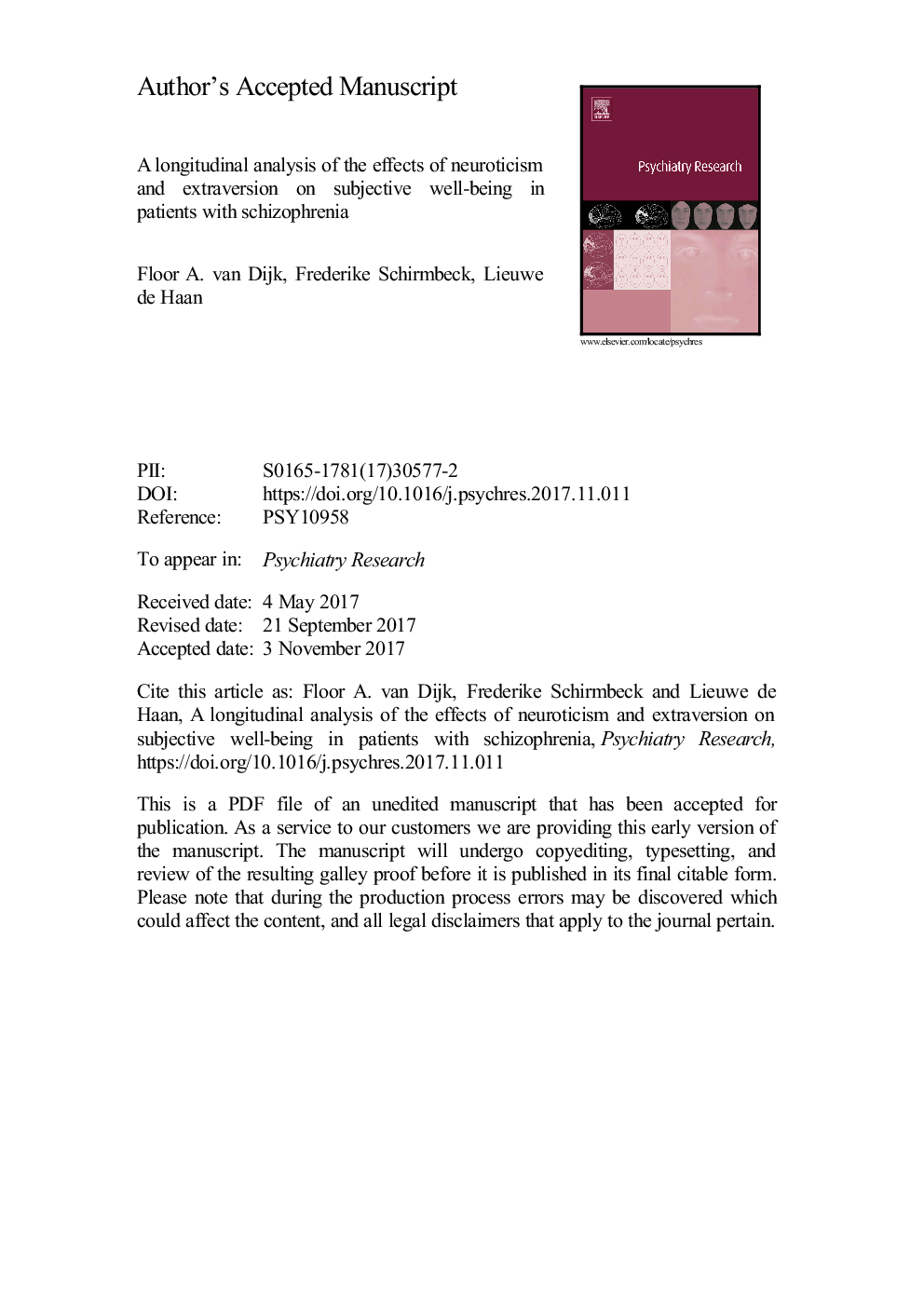ترجمه فارسی عنوان مقاله
تحلیل طولی اثرات روان رنجوری و برونگرایی بر سلامت ذهنی بیماران مبتلا به اسکیزوفرنی
عنوان انگلیسی
A longitudinal analysis of the effects of neuroticism and extraversion on subjective well-being in patients with schizophrenia
| کد مقاله | سال انتشار | تعداد صفحات مقاله انگلیسی |
|---|---|---|
| 121690 | 2018 | 16 صفحه PDF |
منبع

Publisher : Elsevier - Science Direct (الزویر - ساینس دایرکت)
Journal : Psychiatry Research, Volume 259, January 2018, Pages 538-544
ترجمه کلمات کلیدی
رفاه ذهنی تحت درمان نورولوژیک، اختلالات روانپزشکی غیر عاطفی، صفات شخصیتی، مطالعه کوهورت،
کلمات کلیدی انگلیسی
Subjective well-being under neuroleptic treatment; Non-affective psychotic disorders; Personality traits; Cohort study;

